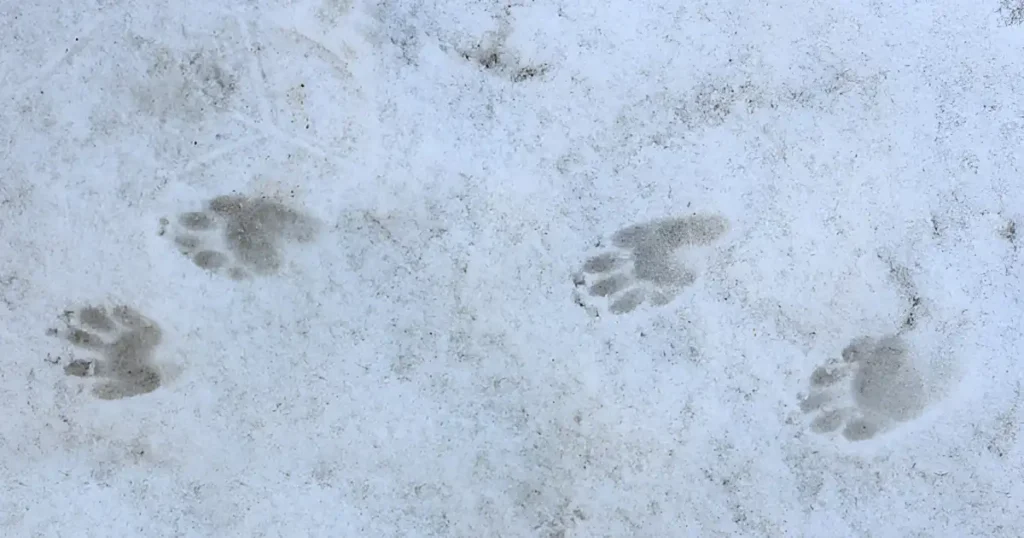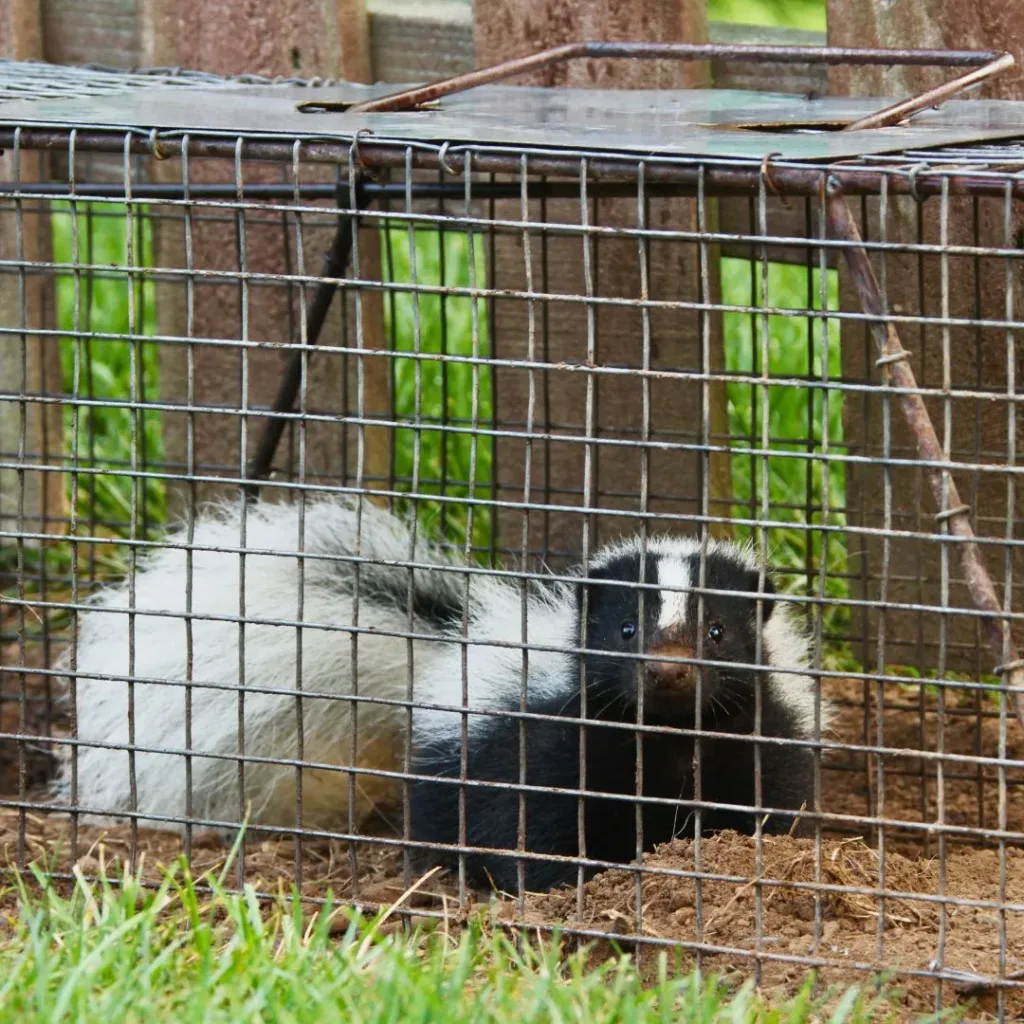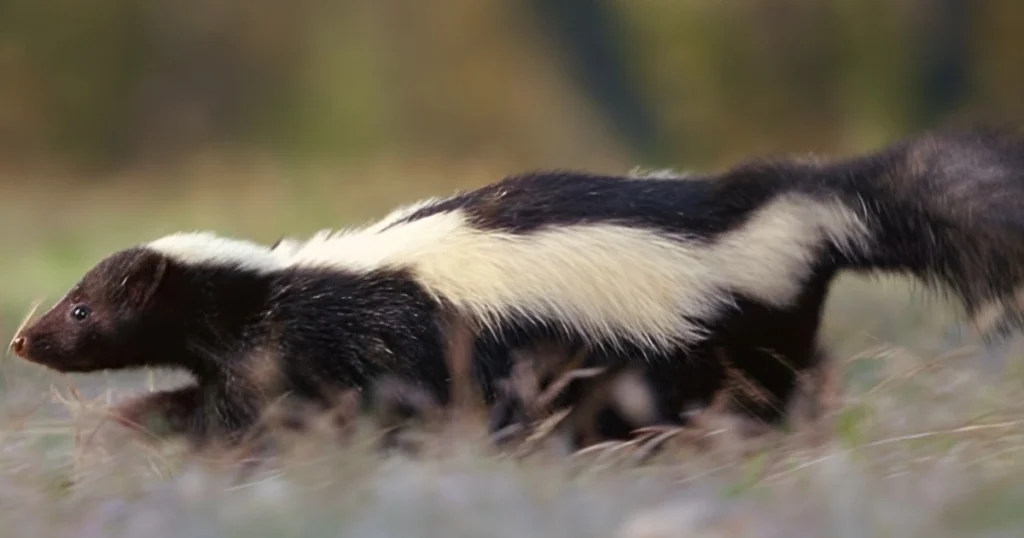
Few animals arrive with a reputation as dramatic as the skunk. Soft-furred, shy, almost comically polite—and armed with one of nature’s most unforgettable signatures. That contradiction is the whole point. What is the skunk spiritual meaning? Spiritually, the skunk is a master of respectful power: it asks for space, gives fair warning, and only escalates when the boundary is ignored. In a noisy world that confuses volume for strength, the skunk is a quiet revolution.
Below, a grounded, human take on the skunk’s spiritual meaning—what it teaches about clear boundaries, authentic confidence, and living in elegant black-and-white without losing your shades of gray. We’ll weave in field-tested natural history (experience), cross-cultural sensitivity and context (expertise), practical guidance (authority), and humane, useful steps you can actually apply (trust).

The skunk wears contrast on its back: that bold black-and-white coat is classic aposematism—“notice me, then leave me alone.” In spiritual terms, it’s the banner of clarity. Be unmistakable about who you are and where your lines are. No cryptic messages. No resentment later. Just a visible promise: I am kind, and I am not to be crowded.
This is not cosplay spirituality; it’s biology giving us a usable blueprint.

A skunk’s power is clarity. Set policies, not ultimatums: “Here’s how I work; here’s what’s off-limits.” A boundary protects you and cues others. It’s an invitation to healthy relationship, not a punishment.
Practice: Write one boundary you’ll keep for 30 days. Speak it once. Enforce it consistently, silently.
Skunks rarely chase. They hold ground. Spiritual translation: step out of unwinnable battles. Choose when to show up and when to stand down. Not avoidance—precision.
Antítesis: Loudness isn’t power. Composure is.
The skunk doesn’t apologize for being unmistakable. Let your work, your voice, your values carry your “signature.” Better to be clear and polarizing than ambient and forgettable.
Small ritual: Place a comforting aroma (herb, oil, clean candle) at your threshold. Every evening, tidy that space for two minutes. You’re training your environment—and your nervous system—to recognize home.
Black-and-white is not a trap; it’s a teaching. Let contradictory truths sit side by side: tired and grateful, firm and kind, ambitious and unhurried. Integrity is made of wholes, not halves.
Cultural care: Specific Indigenous teachings about skunks vary by nation and are not one-size-fits-all. If you’re exploring a tradition, seek that community’s sources. Respect is part of the lesson.
Boundary ritual (5 minutes):
Stand at your front door. Sweep or wipe the threshold. Out loud: “Only what serves may enter.” Place a small object there (stone, sprig, token) as a reminder.
The confident “no”:
Create a one-sentence template you can send or say: “I’m not available for X, but Y could work.” Deliver it without apology. Tail up, calm voice.
Night hygiene:
A skunk thrives after dark but doesn’t invite chaos. Choose one evening practice—quiet walk, screens-off hour, tea—so your night becomes a sanctuary, not a spillover shift.
Humane coexistence (authority meets trust):
If you have actual skunks around, skip the panic. Remove attractants (pet food, open trash, fallen fruit), seal crawlspace gaps with ¼-inch hardware cloth, and use motion lights. That’s classic IPM—effective, ethical, and boring in the best way.
The skunk’s courage is not bravado. It’s nerve with discernment: I will ask, I will warn, I will act—once. Imagine applying that to your inbox, your calendar, your family dynamics. So many problems melt when we trade explanations for clear signals.

The skunk is a paradox wrapped in a tuxedo: gentle yet formidable, solitary yet instructive, shy yet unforgettable. If it’s showing up in your yard, your dreams, or your day, it’s not an omen of doom. It’s a mentor—asking you to smell like yourself, to draw the line where your life can breathe, and to keep your courage quiet and close.
Choose clarity over drama. Choose balance over performance. Choose one strong boundary and let the rest of your life recalibrate around it.
1) What does it mean spiritually if a skunk crosses my path?
It’s a nudge toward boundaries and clarity. Do a quick audit: where are you overcommitted, overexplaining, or under-protecting your time? Make one small, enforceable change now.
2) Is smelling skunk spray a “bad sign”?
Not necessarily. It’s often a wake-up signal: you warned politely, and the situation didn’t change. Time to enforce the limit—firmly and once. Then reset your space (air out rooms, simple cleansing ritual) and move on.
3) How can I honor skunk symbolism without inviting conflict?
Lead with signals: clear policies, gentle refusals, consistent routines. Most conflicts vanish when your cues are visible. Remember, skunks warn first; escalation is rare and strategic.
With their outstanding reputation, high-quality work, and exceptional customer service, Critter Stop is the go-to choice for residential pest control needs. Don’t let cockroaches disrupt your peace—reach out to Critter Stop at tel:(214) 234-2616 and reclaim the sanctuary of your home.
Visit our Critter Library and learn more about our furry friends